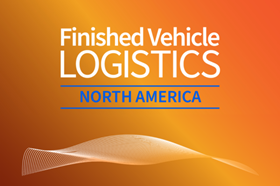Anu Goel on how Volkswagen Group of America’s regional strategy is mitigating tariff disruption and transforming vehicle logistics
Simplified metrics, regional teamwork and agile tools: VW’s Anu Goel shares how logistics is powering resilience across borders, at this years’ FVL North America 2025 conference.
Related video
-

Red Sofa | International’s Tony Stinsa on EV truck delivery challenges
-

Red Sofa | Nissan’s Todd Myers on finished vehicle optimisation
-

Red Sofa | GM applies start-up agility to EV logistics strategies
-

Red Sofa | Audi and Helrom’s rail project boosts sustainability
-

Red Sofa | Autoliv’s Gisela Linge on AI, agility & diversity in logistics
Volkswagen Group of America has taken a regional approach to vehicle logistics to reduce inefficiencies and improve visibility across the US, Mexico and Canada. Speaking toAutomotive Logistics on the Red Sofa at the FVL North America 2025 conference, Anu Goel, executive vice-president of group service and after sales, explained how restructuring logistics operations has delivered a step change in transparency and decision-making.
The transformation started with bottlenecks at the Mexico border. “Each country was making decisions for its own best interest,” said Goel. “We created a North American region finished vehicle logistics organisation, with one person on the ground for each country that handle in-market domestic movements, but then we created a cross-border guru, a senior manager for crossborder logistics, and their job was to get transparency on metrics alignment and then develop the best decision for the region.”
Goel said this regional mindset, supported by shared metrics and twice-weekly calls, helped VW make agile decisions during the US tariff hikes on Mexican imports.
“I would argue that if we hadn’t done this, the tariff chaos would have been significantly worse,” Goel said.
Goel added that it is imperative to recover quickly. “I think the challenge for vehicle logistics teams will be how fast we can recover,” he said. “The rule of thumb we’ve been using is that for every week we hold [vehicles], it takes two to four weeks to recover.”
Volkswagen has also enhanced its control tower visibility and data analytics, though AI integration remains a work in progress. “We’ve got four of the five pillars ticked, and the fifth one is coming,” said Goel.
The results have exceeded expectations. “We did this for a very specific reason, and we actually got an unintended benefit out of it. Usually unintended consequences are bad, but this one has worked out in our favour,” said Goel.
Watch the full video for deeper insights into how VW’s North American logistics team is adapting to disruption and preparing for an uneven competitive playing field.
